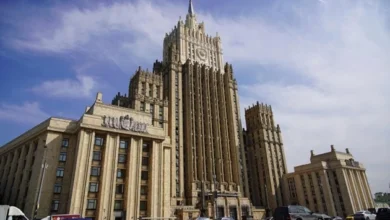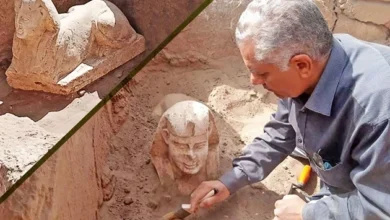Greatest rulers who changed world history
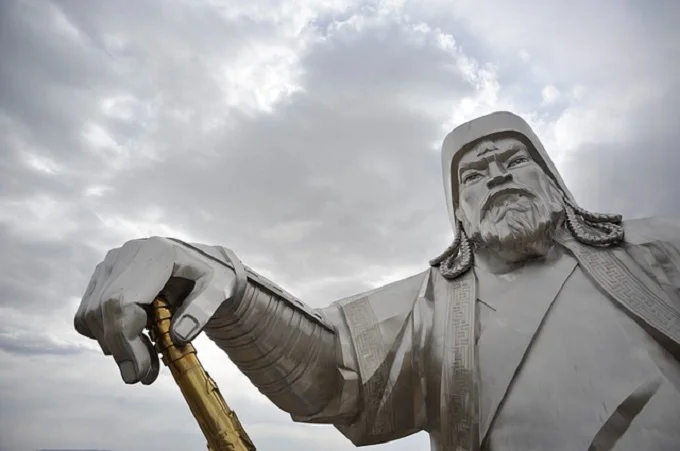
Throughout the history of humankind, there have been millions of rulers of various levels, from the heads of city-states to the emperors of countries that occupied the territory of almost the entire civilized world. Most of them were mediocre and remembered only because they sat for some time on the throne. A small proportion of rulers stood out from the grey mass by their actions, and only a few of them entered the textbooks of world history forever.
Speaking of the greatness of such rulers, we mean the scope of their actions and their influence on the world, not complacency. Many of them brought suffering to other nations, and to their own too, but this does not negate the fact of their enormous influence on history.
6 greatest rulers who changed world history
1. Gaius Julius Caesar
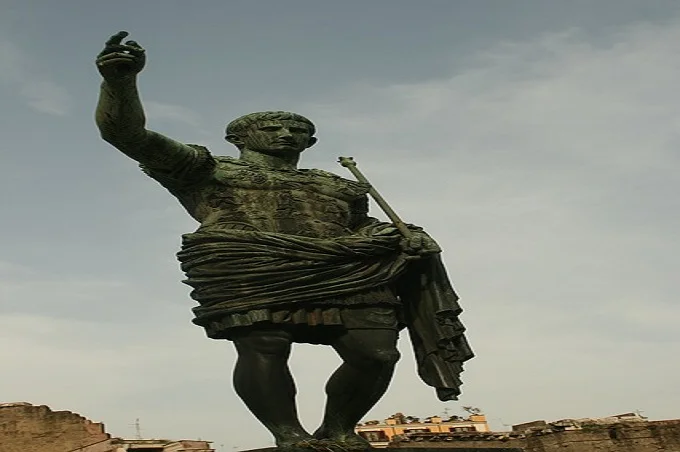
Gaius Julius Caesar lived in the 1st century BC and is perhaps the most famous ruler of Rome. Unlike most politicians, Caesar did not inherit his power by being born into the right family but took it by force. First, he proved his prowess on the battlefield, conquering the Gauls and annexing the territory from the Atlantic Ocean to the Rhine to the then Roman Republic. To get the latest stories, install our app here
Having won, without any exaggeration, the love of the army and the common people, Caesar moved to Rome because the senators, seeing the consequences of his enormous influence on the plebs, decided to try him for official crimes. Thus began the civil war, from which Gaius Julius Caesar emerged victorious, defeating the troops of Pompey the Great.
After that, Caesar was named dictator, but contrary to the erroneous opinion, he did not become emperor. He still ruled the Roman Republic, he had expanded powers, and his adopted son, Augustus Octavian, had already founded the empire.
Caesar was merciful to the plebs and carried out a series of reforms that improved the lives of ordinary people. This led to the fact that the people sincerely did good to the ruler, and his murder by conspirators in the Senate became a day of mourning for the common people.
Caesar’s influence on world history is so great that, centuries later, rulers in many European countries were called Caesars. Augustus was the adopted son of the Roman general and ruler Julius Caesar, and he took the name Caesar as part of his official name. Later Roman emperors did the same, and thus caesar came to mean “an emperor of Rome.” The word caesar was borrowed into German and other Germanic languages as Kaiser, which is how they get the word Kaiser for “a ruler in Germany.” And got the word czar through the Russian word tsar, which came from Kaiser, meaning “a ruler in Russia.
2. Alexander the Great
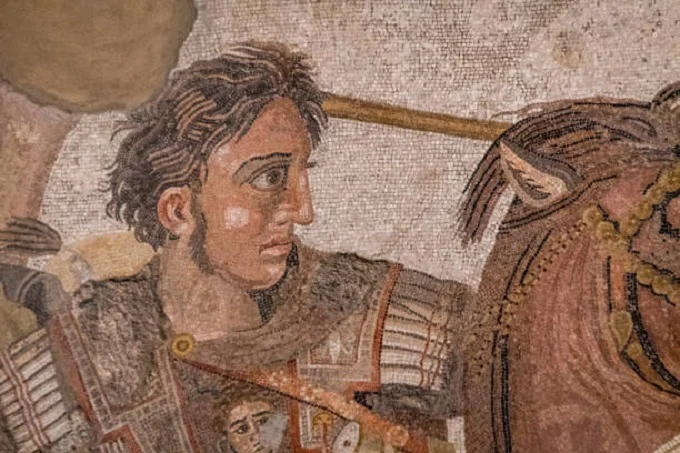
Alexander the Great bore the title of the Great, and for a good reason, because for his military merits, he is honored even today. Alexander ascended the throne at only 20 when many men could not even dare to approach the girl they liked or choose which faculty to enter.
He was not lost in doubt and almost immediately began to act, suppressing the uprising of the Thracians and subjugating Greece. After this triumph, Alexander moved to Persia – the strongest state of that time and defeated its army. But Alexander the Great did not stop there, going further to Syria, Palestine, and Egypt, where he proclaimed himself the son of Amon-Ra and thereby deified his personality. To get the latest stories, install our app here
Having annexed Persia to his power, Alexander conquered Central Asia and then practically conquered India, but his troops staged a riot and had to turn around. In 324, Alexander the Great died at the age of 32, possibly from malaria or pneumonia.
In addition to being one of the largest empires in history, Alexander left behind several cities built from scratch and also spread Greek culture throughout the territory of the conquered states, which led to its flourishing.
3. Genghis Khan

We have already written about Genghis Khan so many times. The history of Temujin, the future Genghis Khan, is different from most rulers because his childhood and youth were extremely harsh. He had to experience years of utter poverty and hunger, the persecution of a distant relative who wanted only one thing – his murder, captivity, and torture.
Temujin withstood the test of fate and got out of hopeless decay and then united several nomadic tribes of North and East Asia, proclaiming the creation of the Mongol Empire.
After that, he conquered China, the state of Khwarezmid, the Tangut kingdom, the Baghdad Caliphate, the Volga Bulgaria, etc. Following the example of their father, his sons expanded the Mongol Empire and could conquer all of Europe, but stopped at Poland, from where they turned back. To get the latest stories, install our app here
4. Peter the Great
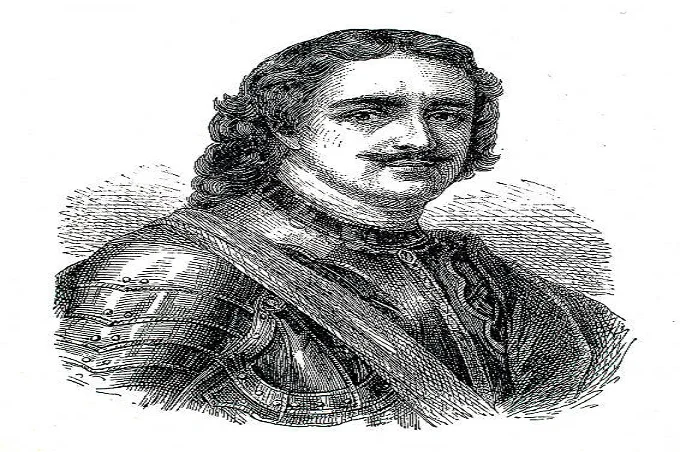
Russian sovereigns are ignored since they allegedly did not have a strong influence on the world. By his reign, Peter I changed the balance of power in Europe and created a new state that could play on an equal footing with other states of the continent.
The fate of Peter I was not as easy as that of many other rulers. As a child, they tried to capture him; he became a pawn in the hands of the conspirators, moreover, his relatives. But thanks to the strength of his spirit, he was able to overcome difficulties.
Becoming king at the age of 10, he showed interest in Western culture from a young age. He was not afraid to go to Europe for a year to establish diplomatic ties and gain experience, moreover, in the guise of an ordinary person.
Returning from Europe, Peter I began to carry out large-scale reforms of the state and society. He modernized the army, created a navy, carried out financial reform, stimulated the development of industry and commerce, created educational institutions, and generally pursued an education-oriented policy. During the reign of Peter the Great, Russia turned from a peripheral kingdom into a modern European power, which later influenced entire world history. To get the latest stories, install our app here
In addition, Peter I expanded the territory of Russia and defeated the army of Sweden, which was considered the strongest at that time, securing the status of a Great Power for the country. It was also under Peter that Kamchatka was annexed to Russia, which gave statewide access to the Pacific Ocean and subsequent expansion to the American continent.
5. Napoleon Bonaparte
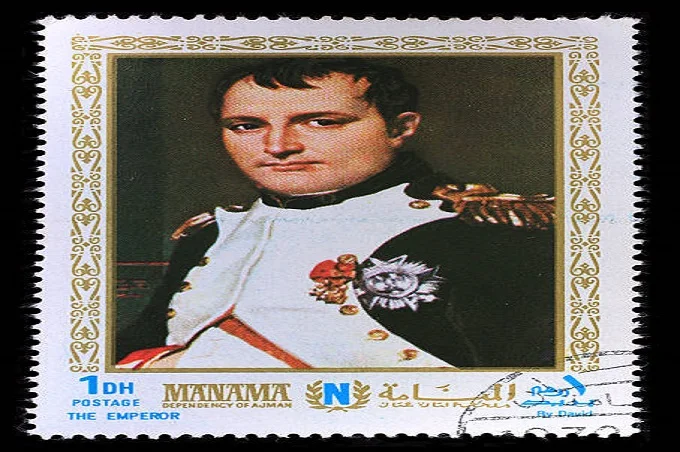
Contrary to the erroneous opinion, Napoleon was not a Frenchman but a Corsican. Moreover, Corsica became part of France in 1768, and Napoleon was born in 1769. Had he been born a year earlier, he would have been a citizen of the Republic of Genoa and would not have become one of the greatest rulers in history.
He began his professional military service in 1785, and thanks to his talents during the French Revolution, he rose from sub-lieutenant to brigadier general. Already in 1796, he was appointed commander of the Italian army and conducted successful Italian and Egyptian campaigns.
In 1799, Napoleon staged a coup d’état and gradually won the position of dictator for himself, and then in 1804 assumed the title of emperor. After that, he fought a series of successful wars that helped establish France as the dominant power in Europe. The only country that competed on equal terms with France was Great Britain, with which Napoleon could not do anything due to the lack of a fleet comparable in power. To get the latest stories, install our app here
However, Napoleon Bonaparte did not consider that he would force the states that previously did not particularly have warm feelings for each other to unite in a coalition with his aggressive policy. Having attacked the Russian Empire, he thereby created an anti-French coalition of European powers, was defeated, and sent into exile on the island of Elba.
6. Charlemagne
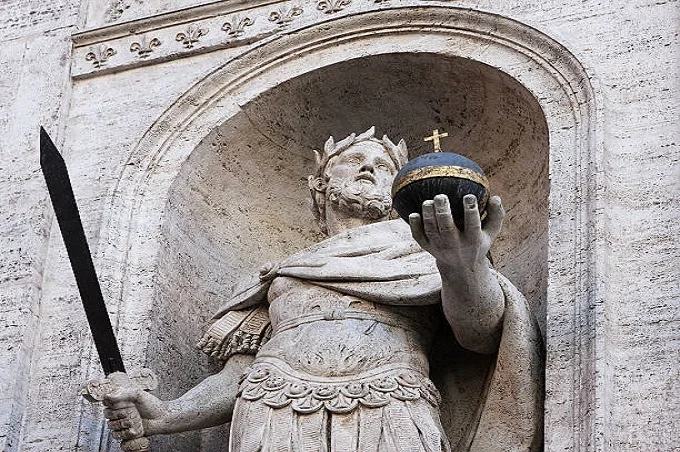
After the fall of the Western Roman Empire, Europe lay in ruins. On the territory of the once great state, many disparate principalities were constantly at war with each other. But this was put to an end by Charlemagne, the king of the Franks and the founder of the Carolingian empire. Moreover, the title of the Great, like Alexander the Great, Charles received during his lifetime, which was awarded only to rare rulers.
Why did he get such a loud prefix? After becoming king of the Franks after his father’s death, he began a campaign to conquer neighboring principalities and bring pagans to Christianity. During the years of his reign, he conquered the lands of northern Spain, stopped the Muslim invasion, conducted successful campaigns against the Saxons, Bavaria, Aquitaine, and other states, and for the first time in a long time united Europe under a single banner. After that, he received the title of “Father of Europe”. To get the latest stories, install our app here
In addition to military campaigns, Charlemagne was known for promoting Christianity improving the state system and the well-being of the people.

